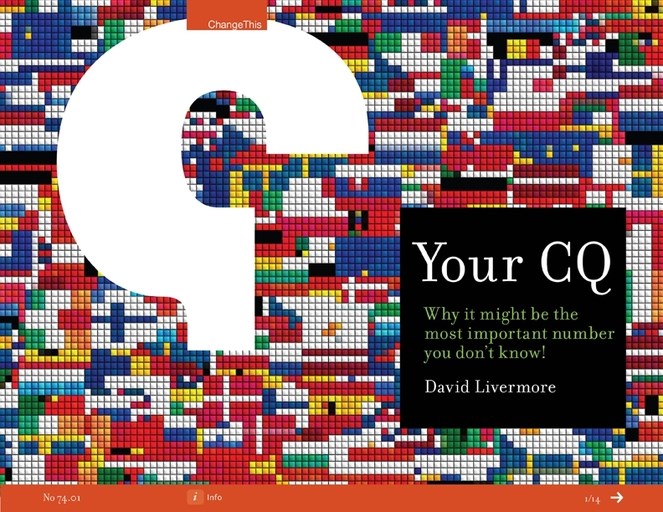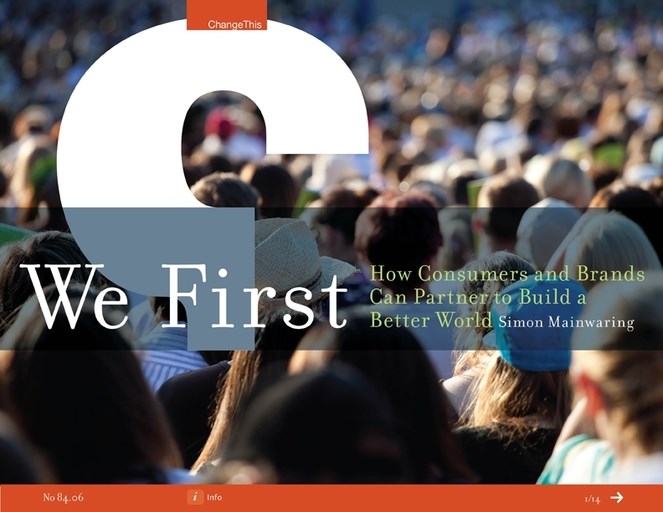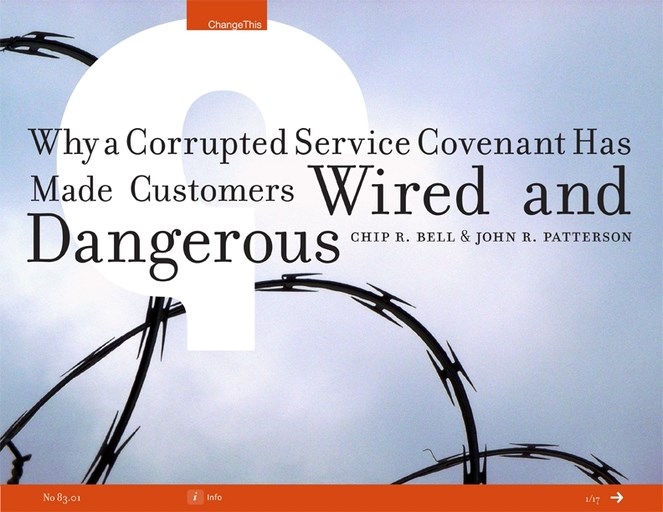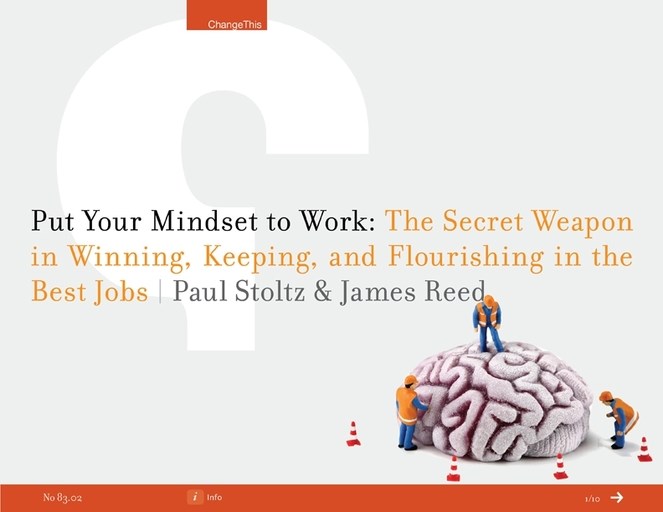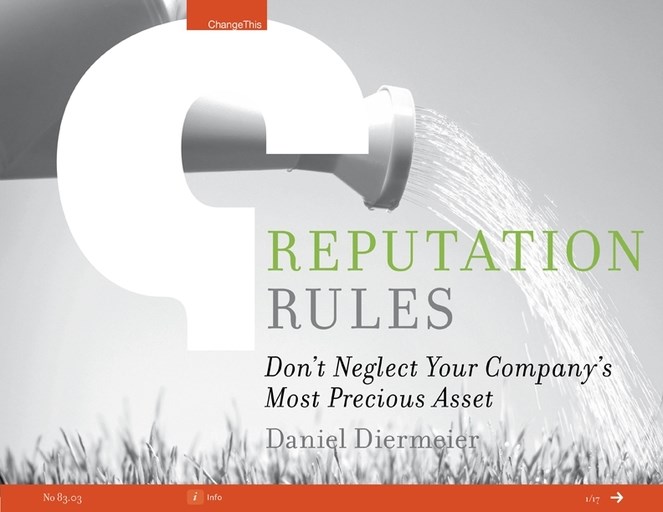ChangeThis RSS
"Everything has gone global. Communication. Work. Politics. Relationships. Faith.
We get it. In fact, by this point, the statement almost sounds a bit trite. Any organization knows that the word "global" better find its way into its messaging and strategy.
But how do we move beyond mantras about cultural sensitivity and global awareness to successfully adapting to various cultures while simultaneously remaining true to ourselves? Both sides of the equation are essential—being true to ourselves and adapting to different cultures. And being true to our organizational identity and brand while also responding to an onslaught of culturally diverse markets."
Continue reading
"We First capitalism posits that we can no longer accept the myopic, short-term, profit-for-profit's sake practice of capitalism we invite corporations and consumers to engage in today. Allowing every individual, every investor, every corporation, and every nation to think solely about its own self-interests and its own profits is not the solution to creating a more peaceful, prosperous, and equitable world. The transformation from Me First to We First is no longer an option, because we now live in an interconnected, complex, globalized world of 7 billion people, all of whom need a portion of the resources and the prosperity that the Earth provides. Capitalism can no longer be an elite economic system whose results fund a limited group of people, leaving billions of others living without opportunity or hope. Our connections to each other are growing ever tighter, such that the actions of a single individual, bank, corporation, or nation can have an immediate and deleterious impact on millions of other people.
In the We First paradigm, we need to recognize that prosperity is the well-being of many, not the wealth of a privileged few. The We First mindset helps us cut through the quagmires of so many philosophic debates and economic analyses so that we can focus on pragmatic, realistic and actionable solutions driven by meaningful goals to collaboratively advance our world."
Continue reading
"Progress requires change. And, change provokes resistance. However, customers do not necessarily resist change itself. They accept change when they get a vote; they embrace change when they can participate. They resist the perception or prediction of being controlled or coerced without their involvement.
Migrating customers toward self-service, for example, can bring an array of time-saving benefits to everyone—service provider and service receiver. But the manner in which that migration typically occurs—without influence from customers—can be viewed as devaluing the co-creator, thus adding another spark to the flame of their opposition. Today's customers are already picky (all about value), fickle (reluctant to show loyalty), vocal (quick to comment on poor or indifferent service) and vain (only interested in tailor-made offerings). Armed with a computer and a network, the new normal customer becomes wired and dangerous if frustrated."
Continue reading
"What does it really take to win, keep, and flourish in the best jobs? Let's begin by shattering a sacred assumption. If you want a good job, it's all about qualifications. Put another way, the best way to increase your chances of getting a great job is by upgrading your skills. Right? Wrong!
That is, at least according to the thousands of the world's top employers we formally surveyed. Their answers to these four questions can and should have profound implications on your entire career.
[...]
Mindset utterly trumps Skillset. Not by a little, but by a landslide. That's why trying to win the best jobs by doing yet-more skills training is like training for a marathon by doing sprints and hurdles. It may help, but it's not going to win the race."
Continue reading
"CEOs and board members routinely list reputation as one the company's most valuable assets. Yet, every month a new reputational disaster makes the headlines destroying shareholder value and trust with customers and other stakeholders. During the last year leading companies ranging from Toyota, Goldman Sachs, BP to HP and Johnson & Johnson battled severe reputational crises. In recent weeks we have witnessed not only the devastating earthquake and Tsunami in Japan, but also the so far futile response of Tepco, the nuclear operator of the Fukushima nuclear power plant. [...]
Trust is now an essential part of business success. Yet trust in U.S. business has substantially dropped over the last decade. While trust in business is still higher in developing countries, Non-governmental organizations (NGOs) are on a par with businesses in emerging markets and more trusted in developed markets including the United States. These data suggest that business can no longer rely on a trust reservoir. Rather trust needs to be earned.
Companies have not responded to these changes. Their reputational risk has increased dramatically, but their capabilities have stayed the same. The result is one crisis chasing another and the long-term erosion of public trust in private enterprise."
Continue reading

